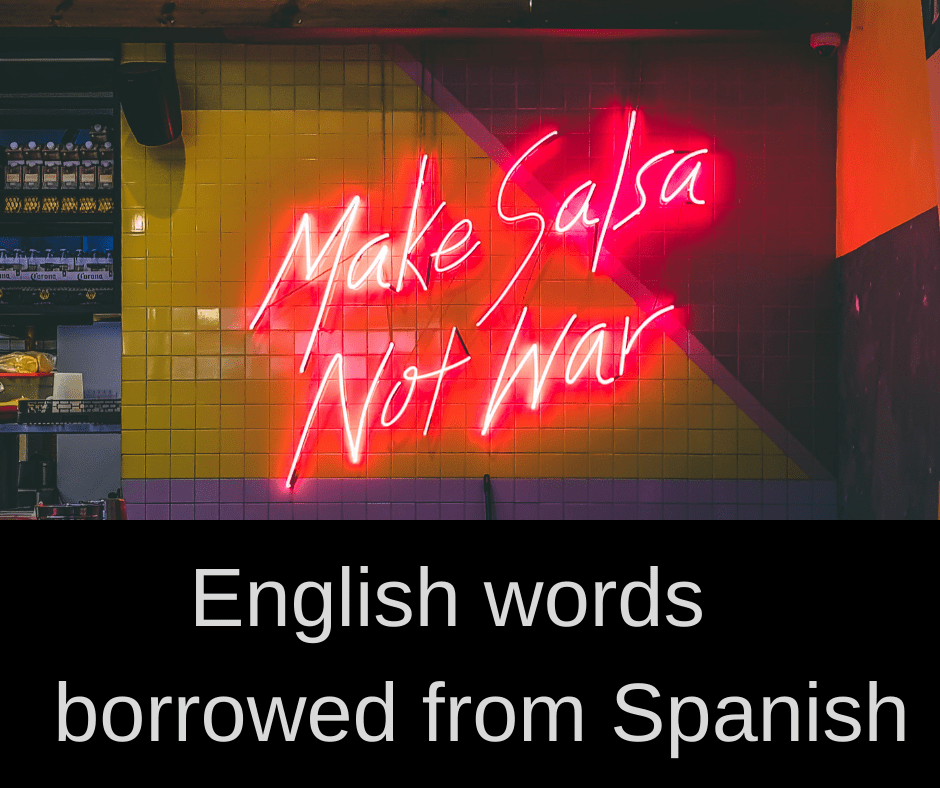
Many words we use regularly in English are actually borrowed from the Spanish language.
That makes life a lot easier for you if you’re a Spanish speaker! We’ll speak about some of them today and explain how to pronounce them correctly in English.
Carlos (Charlie) from Mexico who is living in Canada.
He works in a cherry orchard and is about to start the winter pruning.
How the trees are growing up (trees and plants grow, people grow up)
https://inglespodcast.com/155 – Farming and Agriculture
Voice message from Marlon from Brazil
I listen twice to understand Xwhat are you sayingX – what YOU ARE SAYING
I was wonder (wondering) if you had Xan adviceX (some advice)
How can Marlon improve his pronunciation?
- Focus on short chunks of language. Listen and repeat.
- YouTube channels: mmmEnglish, Accent’s Way English with Hadar, English with Lucy, Learn English with Papa Teach Me
- English Pronunciation for Spanish Speakers: https://store.mansioningles.net/english-pronunciation-for-spanish-speakers/ (12 euros)
Thanks to Charlie Geer for this idea (@amerizano on Twitter). Charlie suggested this week’s topic. Charlie is based in Jerez, Andalucia, and is originally from South Carolina in the US.
Spanish words we need in English, like cachondea, guiri and funcionario: https://inglespodcast.com/127
Here are some words commonly used in English that have Spanish roots. Some are exactly the same as Spanish, while others have undergone alterations. Identical words in both languages sometimes have different pronunciation.
Place names: Colorado, Montana, Las Vegas (the meadows – vega=fertile plain, rich lowland area), Los Angeles, San Francisco, Cuba, Mexico, Argentina and almost all of Latin America!
Breeze – brisa
Tobacco – tabaco, cigar – puro, cigarette – cigarro/cigarillo
Cargo (Goods that are transported through ship, aircraft, or motor vehicle) – carga
Armada and flotilla
Galleon – galeón
Sierra – a mountain range
Embargo
Ranch – rancho (A large farm to raise livestock or crops)
Mosquito (little fly)
Cockroach – cucaracha
Cocoa
Chocolate (which got into Spanish from the Nahuatl language. So, English borrows it from Spanish, which borrows it from Nahuatl. This type of passed-on borrowing is common.)
Coyote (also originally Nahuatl)
Puma (originally Quechua)
Macho
Don Juan
Tango, salsa and rumba
Guerrilla (adj. or person) not gorilla!
Avocado – aguacate and guacamole
Barbecue
Cafeteria
Bodega
Patio (An open area or a courtyard attached to a house)
Plaza (A public area, in a form of a building with shops and stores)
Siesta, pronto and nada.
Burrito (little donkey), taco, enchilada, fajita.
Silo
Rodeo
Lasso – lazo
Buckaroo – from vaquero
Conquistador – in English this refers only specifically to Spanish conquistadors
Creole – criollo
Matador
Aficionado
Tequila – named after the town where it originated in Mexico (northwest of Guadalajara, and in the Jaliscan Highlands (Los Altos de Jalisco) of the central-western Mexican state of Jalisco.)
“El Niño” – the climate phenomenon
Voice message from Mamen fron Badajoz, Extremadura.
X‘I have listened you‘X – I have been listening TO you since the lockdown.
…and now it’s your turn to practise your English.
Send us a voice message. https://www.speakpipe.com/inglespodcast
Send us an email with a comment or question to [email protected] or [email protected].
Visit our online store: https://store.mansioningles.net/
Thank you to all of you who are helping us by supporting this podcast. You can see a list of all our Patreon supporters at Patreon.com/inglespodcast
Welcome to our new Patreon supporters who have joined us this month:
Cristian Garcia Magro
Raquel Sanchez
Pere Crespí Cabot
Antonio Murillo
Luis Lobo Martinez
Marina Rueda
Beatriz
Josep Girvent
Join our Patreon program for as little as $1.20 per month (including VAT) and you get instant access to recent transcriptions. https://www.patreon.com/inglespodcast
On next week’s episode: Ways to express anger in English
The music in this podcast is by Pitx. The track is called ‘See You Later’
Photo by Victor Garcia on Unsplash


